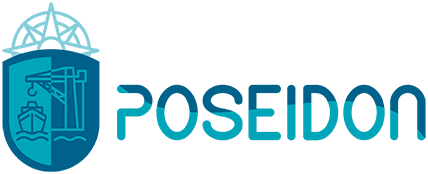On April 15th, the POSEIDON project embarked on its sixth and final study visit, navigating through the Port of Venice. The event brought together Consortium partners, supporting partners including representatives from the Port of Antwerp-Bruges and Port of Algeciras, Greek Customs and Coast Guard operators, and local port stakeholders.
The study visit began with a warm institutional welcome from the Director of the North Adriatic Sea Port Authority, emphasizing the pivotal role of the POSEIDON project in facilitating the exchange of insights and best practices among the different EU ports. Following the opening remarks, representatives from the Venice port authority provided an insightful overview of the port’s diverse facilities and operational activities.
Participants had the unique opportunity to delve into the intricacies of the Venice port facilities with boat tour, gaining firsthand insights into potential strengths and challenges.
After a joint lunch, the POSEIDON Project Manager gave a presentation of the main objectives and findings of the project so far. The afternoon session delved deeper into the vulnerabilities within the port supply chain system, with valuable insights from our partner Ecorys. Additionally, representatives from various law enforcement agencies (LEAs) at the port of Venice, including the Customs Agency, Financial Police, Border Police, and Harbor Master, shared their experiences and challenges in combating corruption and illicit activities.
The visit also laid the groundwork for the upcoming POSEIDON Thematic Dialogue, focusing on human smuggling providing examples with some past cases on this phenomenon in the Venice port.
Thanks to the collaborative efforts of NASPA, the study visit proved to be fruitful, underscoring the importance of public-private collaboration and the exchange of information and best practices among EU ports in combating corruption.
The POSEIDON project remains steadfast in its commitment to combat corruption in European ports, foster cross-border and cross-sector collaboration, and facilitate the sharing of experiences to enhance the security and integrity of the maritime sector.


